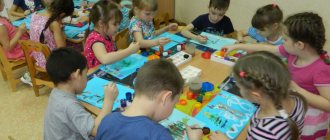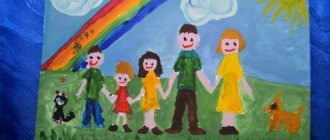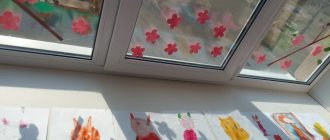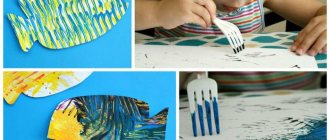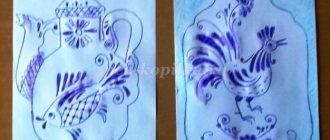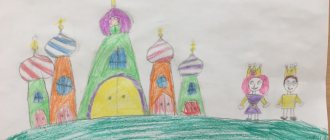On the topic: methodological developments, presentations and notes
In the preschool education system, new models of interaction between families and preschool educational institutions for organizing joint events between parents and children are currently being developed, which is fully consistent with the Federal Law.
Creative project MY FAVORITE TOY Information card of the project: Type of project: Creative and gaming, short-term. Duration of the project: November 1-14, 2014. Project participants: Teachers, parents, children. V.
Short-term project in the preparatory group.
Speech development lesson “My favorite toy.”
Project: creative, group. Project implementation period: short-term (1 week). Project participants: children 1 younger.
The lesson notes will help adults motivate children to create images of toys in a group.
Source
How to draw a toy with a pencil step by step
Step one. First, let's create a blank form that looks like a small bottle. And let's put a cute bear there. Step two. Using round shapes we create all parts of the bear’s body and add a bow. Step three. We outline everything a little tighter, removing unnecessary lines. For decoration, add a butterfly to the neck of the toy. Shade out the nose and eyes. Step four. Let's delete the auxiliary lines drawn earlier. Step five. Let's add shading throughout the body to make it more realistic. Don't forget to show your drawings of toys later. You can attach them below in the comments, and also write to me what other lessons I can prepare for you. You can do this on the orders page. It will also be useful for you to read.
I propose a summary of direct educational activities for children of the older group of 5-6 years old on the topic: “My favorite toy.” This material will be useful to teachers of the senior group. This is a summary of a comprehensive lesson in visual arts, aimed at developing emotional responsiveness and conveying your mood with paints.
Preview:
MKOU secondary school No. 11, Ivdel, Ous village
organizing direct educational activities with children
"My favorite toy"
Muravyova Natalya Petrovna
organizing joint direct educational activities with children
Theme: My favorite toy
Age group: senior mixed age 5-7 years
Joint GCD form
Group form of organization
Educational and methodological set: Sample educational program “Childhood” _ T.I. Babaeva, A.G. Gogoberidze, O.V. Solntseva and others.
Unconventional drawing techniques in kindergarten. A.V.Nikitina
visuals: Parsley doll, sample drawings,
literary story by V. Dragunsky “Childhood Friend”
musical V. Kosma “Toy”
Equipment and materials: A4 sheets, brushes, gouache, wax crayons, pencils, cups of water, napkins.
Tasks taking into account the individual characteristics of group students
Goal: To create conditions for the development of children’s creative activity in the process of visual arts.
Tasks: Continue to teach children to draw toys based on ideas; develop the ability to work on a plan, present the content of your drawing; improve the skill of drawing a contour with a simple pencil without pressure. To instill in children a sense of empathy and respect for toys.
Actions, activities of the teacher
Actions, activities of children,
the implementation of which will lead to the achievement of planned results
Guys, today we have a lot of guests in our group. They came to us to see how we work with you. Let's say hello to the guests.
Involves participation in joint activities.
He sat in front of me, so chocolate-colored, but very shabby, and he had different eyes: one of his own - yellow glass, and the other large white - from a button from a pillowcase; I didn't even remember when he appeared. But it didn’t matter, because Mishka looked at me quite cheerfully with his different eyes, and he spread his legs and stuck out his stomach towards me, and raised both hands up, as if he was joking that he was already giving up in advance...
And I looked at him like that and suddenly remembered how a long time ago I never parted with this Mishka for a minute, dragged him everywhere with me, and nursed him, and sat him at the table next to me for dinner, and fed him with a spoon semolina porridge, and he got such a funny little face when I smeared him with something, even the same porridge or jam, then he got such a funny, cute little face, just like he was alive, and I put him to bed with me, and rocked him to sleep , like a little brother, and whispered different tales to him right into his velvety hard ears, and I loved him then, loved him with all my soul, I would give my life for him then. And here he is now sitting on the sofa, my former best friend, a true childhood friend.
Creates a positive emotional mood
Source
On the topic: methodological developments, presentations and notes
Summary of thematic entertainment in the first junior group.
Summary of a descriptive story for the senior group.
on physical development of preschool children.
SUMMARY OF NODES ON SPEECH DEVELOPMENT Compilation of a story - description “My favorite toy” Purpose: to teach children to describe an object from memory according to a model specified by the teacher. Educational.
Lesson summary on the topic: “My favorite toy.” on the physical development of children of the younger group (3-4 years).
Abstract of the educational activity on the topic “My favorite toy” (modeling) Lesson in the second junior group (group teacher: Anna Anatolyevna Ushnurtseva) Goal: development of children’s imagination. Objectives: Complete.
Summary of educational activities in the junior group. Topic: “My favorite toys” Purpose: To teach children to take care of their own and other people’s toys, and the rules for handling toys.
Source
“Favorite toys in our group.” outline of a drawing lesson (senior group) on the topic
Topic: “Favorite toys in our group.”
Software tasks:
— Teach children to create an image of their favorite toy: convey the shape of the parts of the toy; characteristics.
Learn to draw an outline with a simple pencil (do not press too hard, do not trace the lines twice).
— Strengthen the ability to carefully paint over an image (without going beyond the outline, evenly without gaps, applying strokes in one direction: from top to bottom or from left to right or obliquely with a continuous movement of the hand).
